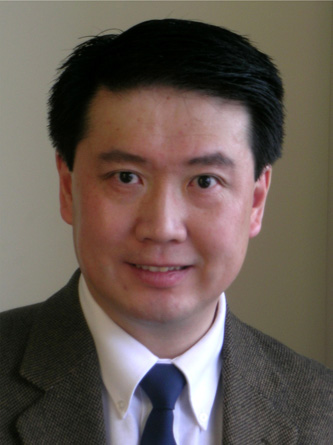
Home | | BMM | Why BMI? | Why Me? | Programs | Committees | Webinars | Classes | Founding | Login
Summer 2015 | Summer 2016 | BMI 831 | BMI 861 |BMI 871 | Contest | Registration | Sponsors
BMI 861: Brain Automata
 |
LecturerJuyang (John) Weng, PhD A 3-week distance-learning course, June 20 - July 8, 2016 |
|---|
Course Description
This course is intended for those majoring in biology, neuroscience, psychology, electrical engineering, and all others who have not learned the theory of Turing Machines. Students will learn the symbolic brain theory related to how the brain works, leaving the emergent brain theory to BMI 871. Agents. Continuous time and discrete time. Mathematical induction. Finite Automata. Concepts as actions. Spatial abstraction. Temporal abstraction. Turing Machines. Universal Turing Machines. Von Neumann computers. Rules vs. data. Formal languages. The controller of a Turing machine is a Finite Automaton. Brains as ground and emergent Turing Machines.
Textbook: John Martin, Introduction to Languages and the Theory of Computation, 4th edition, ISBN: 978-0073191461, McGraw-Hill, New York, 2011. This text does not mention brains at all. Additional material related to brains will be added.
The course syllabus.
Short bio
Juyang (John) Weng is a professor at the Department of Computer Science and Engineering, the Cognitive Science Program, and the Neuroscience Program, Michigan State University, East Lansing, Michigan, USA. He is also a visiting professor at Fudan University, Shanghai, China. He received his BS degree from Fudan University in 1982, his MS and PhD degrees from University of Illinois at Urbana-Champaign, 1985 and 1989, respectively, all in Computer Science. From August 2006 to May 2007, he is also a visiting professor at the Department of Brain and Cognitive Science of MIT. His research interests include computational biology, computational neuroscience, computational developmental psychology, biologically inspired systems, computer vision, audition, touch, behaviors, and intelligent robots. He is the author or coauthor of over 250 research articles. He is an editor-in-chief of the International Journal of Humanoid Robotics and an associate editor of the IEEE Transactions on Autonomous Mental Development. He has chaired and cochaired some conferences, including the NSF/DARPA funded Workshop on Development and Learning 2000 (1st ICDL), 2nd ICDL (2002), 7th ICDL (2008), 8th ICDL (2009), and INNS NNN 2008. He was the Chairman of the Governing Board of the International Conferences on Development and Learning (ICDLs) (2005-2007, ), chairman of the Autonomous Mental Development Technical Committee of the IEEE Computational Intelligence Society (2004-2005), an associate editor of IEEE Trans. on Pattern Recognition and Machine Intelligence, an associate editor of IEEE Trans. on Image Processing. He is a Fellow of IEEE.